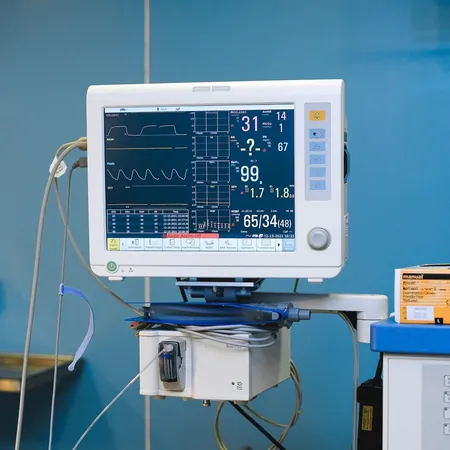
Revolutionary Heart Failure Study Unveils Life-Saving Strategy
2025-08-17
Author: Siti
Groundbreaking Findings from the TITRATE-HF Study
The TITRATE-HF study has unveiled crucial insights into heart failure (HF) treatment, demonstrating that early and rigorous application of guideline-recommended medical therapy (GRMT) can significantly enhance patient outcomes.
The Challenge of Heart Failure Guidelines
Current treatment guidelines advocate for the use of four essential medication classes for patients with reduced ejection fraction. However, implementing these guidelines effectively poses a significant challenge due to the complexity of timely drug sequencing and achieving target dosages.
A Groundbreaking Clinical Trial
To tackle these challenges, the TITRATE-HF trial was launched, focusing on the real-world applications of GRMT. Researchers aimed to decipher the barriers to effective treatment and adherence in a clinical setting.
Jishnu Malgie, a PhD candidate from Erasmus MC University Medical Center, noted that the study seeks to bridge the gap between clinical recommendations and actual healthcare practices.
Study Overview and Patient Insights
Conducted across 48 hospitals in the Netherlands from 2022-2024, this observational cohort study examined 3,367 heart failure patients with left ventricular ejection fractions (LVEF) below 50%. The study classified patients into three categories: de novo HF, chronic HF, and worsening HF, with detailed profiles on each group.
The Power of Quadruple Therapy
Among those diagnosed with de novo HF, the initiation of quadruple therapy—incorporating all four medication classes—showed increasing adoption rates over time, from 47.2% at 6 weeks to about 64% by 12 months. This uptick in therapy usage was driven by better integration of sodium-glucose co-transporter 2 inhibitors (SGLT2i) into treatment plans.
Remarkable Improvements in Heart Function
The results were promising: patients who received early quadruple GRMT treatment saw significant improvements in LVEF. Echocardiogram assessments revealed that median LVEF increased by 10% in ischemic cases and 15% in non-ischemic cases within just six weeks.
Urgent Need for Continuous Treatment Adjustment
Despite relatively high GRMT prescription rates compared to previous studies, the researchers emphasized an urgent need for ongoing titration and improvement in adherence to guidelines. Concerns were raised over the risks associated with treatment discontinuation, highlighted by a 13.3% composite endpoint occurrence in de novo and chronic groups, but a stark 43.8% in worsening HF patients.
The analysis confirmed that the risks of deterioration significantly increased with any discontinuation or dose reductions.
A Call to Action for Healthcare Providers
The findings not only reveal the potential for dramatically improved HF management but also underscore the necessity for healthcare providers to approach each patient interaction with a sense of urgency. Each visit represents a vital opportunity to enhance GRMT adherence and patient outcomes.




 Brasil (PT)
Brasil (PT)
 Canada (EN)
Canada (EN)
 Chile (ES)
Chile (ES)
 Česko (CS)
Česko (CS)
 대한민국 (KO)
대한민국 (KO)
 España (ES)
España (ES)
 France (FR)
France (FR)
 Hong Kong (EN)
Hong Kong (EN)
 Italia (IT)
Italia (IT)
 日本 (JA)
日本 (JA)
 Magyarország (HU)
Magyarország (HU)
 Norge (NO)
Norge (NO)
 Polska (PL)
Polska (PL)
 Schweiz (DE)
Schweiz (DE)
 Singapore (EN)
Singapore (EN)
 Sverige (SV)
Sverige (SV)
 Suomi (FI)
Suomi (FI)
 Türkiye (TR)
Türkiye (TR)
 الإمارات العربية المتحدة (AR)
الإمارات العربية المتحدة (AR)